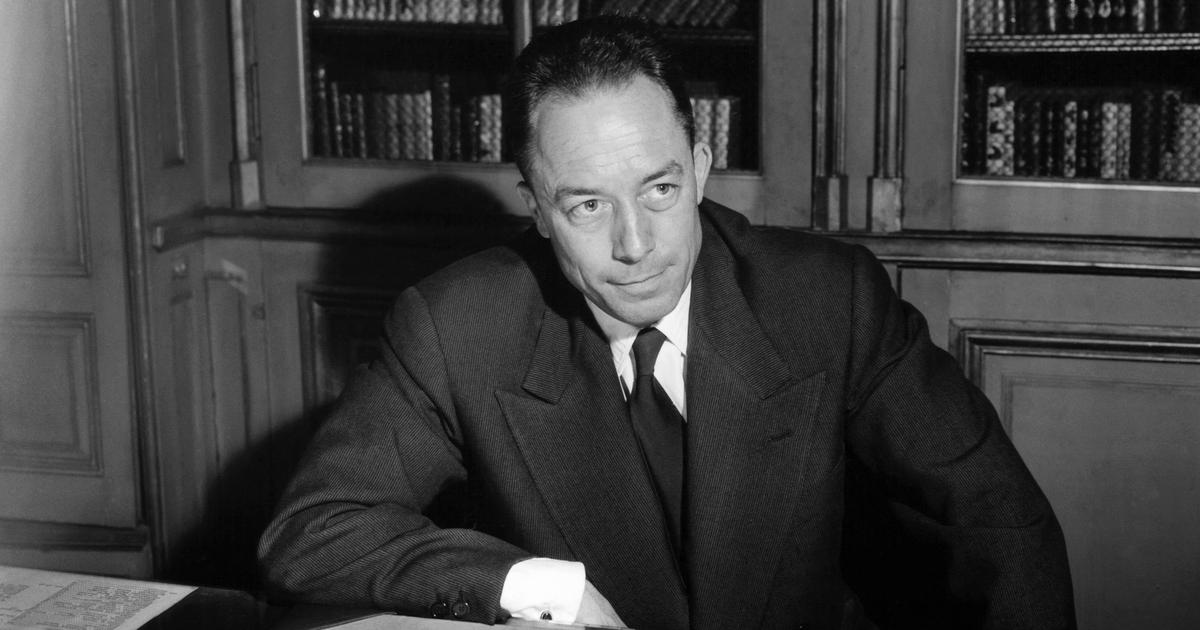In the collective memory of several generations of high school students, the name of Albert Camus is linked to two novels:
The Plague
and
The Stranger
, studied in countless first and final year classes.
The power of this literary work is such that it makes us forget what the author and the man considered his true passion: theater.
He explains it in the sequence that Madelen invites you to discover: an extract from
Gros plan
.
Broadcast between 1956 and 1962, this show is the ancestor of countless formulas that flourish today on all channels: the confession, in front of the camera, of a personality in the setting of their choice.
In this self-interview, filmed in May 1959, eight months before his death in a car accident, the philosopher, observer of his time, develops his notion of happiness.
To those who assure us that we should above all not declare that we are happy, he replies that on the contrary, it is essential to be happy, to have the strength and generosity to help those who are in misfortune.
To this overall reflection, he adds his particular case: the theater is one of the places where he is happiest.
To the solitary daily life of the writer, he has always greatly preferred collective work around staging.
Between 1938 and 1959, he wrote four original plays and seven adaptations.
He spoke at length on the subject during his very rare appearances on the small screen, at a time when the number of his readers was far greater than that of television sets.
To discover
Crosswords, Sudoku, 7 Letters... Keep your mind alert with Le Figaro Games
Also read: What Camus has to tell us about today's world, by Mohammed Aïssaoui and Raphaël Enthoven
In February 1958, in
Voions un peu
, a program devoted to shows, he mentioned
Caligula
, a tragedy in four acts performed at the Théâtre Antoine.
It was created in 1938, then performed by Gérard Philipe in 1946. He explains how history made it sadly prophetic.
From the start, in constructing the portrait of an autocratic Roman emperor for whom assassination was part of everyday life, he thought of Hitler, of the notion of passion and the logic of power which, over the centuries, has not never stopped wreaking havoc in the world.
In another report broadcast in the Journal Télévisé in January 1959, he presented an adventure that is financially impossible to realize today: the adaptation in the form of a play in three acts of Dostoyevsky's novel,
The Possessed
: a show on the stage of the same Théâtre Antoine, performed by 24 actresses, including Pierre Blanchar, Michel Bouquet, Tania Balachova and Charles Denner.
It begins at 8 p.m., lasts more than three and a half hours, and could have continued beyond midnight if Camus, who directs, had not cut around fifty minutes of text during rehearsals.
In these rare confessions, the one who was a young goalkeeper for the Racing Club of Algiers does not fail to express his passion for football.
Since the mid-1950s, he has gone to the Parc des Princes as often as possible to attend French championship matches.
On October 23, 1957, at half-time of a
“Monaco-Racing”
which would be won by Monaco, a French television reporter saw him in the stands and went towards him to ask his feelings about the first part. of the meeting.
“Racing doesn't look like it's in great shape but we shouldn't overwhelm it.
He showed himself to be particularly dangerous during the last minutes,”
he replies, displaying a relaxation that his interlocutor takes advantage of by venturing to ask him the reasons which determined the Nobel jury to award him a prize which he is preparing to go and receive guests in Stockholm.
Until this moment the only public reaction from the winner was limited to
“It’s Malraux who should have got it!”
»
.
And now, quite naturally, taken by the atmosphere, Camus provides, for the first time, an answer to the question that journalists around the world have tried in vain to ask him: “I don’t know
, because I don’t know.” I'm not in on the secrets of the Swedish Academy, but I sincerely think that there are at least two or three writers who deserved to be chosen before me.
But since they had decided to appoint a French writer, perhaps they wanted to show that France sometimes had a younger face than we generally think
.
He had just turned 44 then.

